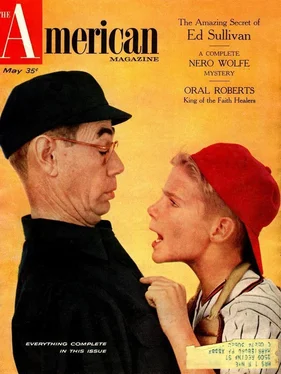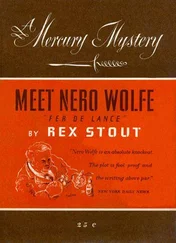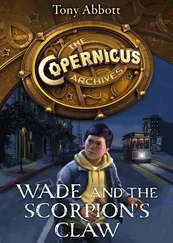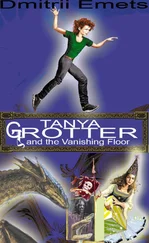Rex Stout - Nero Wolfe and the Vanishing Clue
Здесь есть возможность читать онлайн «Rex Stout - Nero Wolfe and the Vanishing Clue» весь текст электронной книги совершенно бесплатно (целиком полную версию без сокращений). В некоторых случаях можно слушать аудио, скачать через торрент в формате fb2 и присутствует краткое содержание. Год выпуска: 1956, Издательство: The American Magazine, May 1956, Жанр: Классический детектив, на английском языке. Описание произведения, (предисловие) а так же отзывы посетителей доступны на портале библиотеки ЛибКат.
- Название:Nero Wolfe and the Vanishing Clue
- Автор:
- Издательство:The American Magazine, May 1956
- Жанр:
- Год:1956
- ISBN:нет данных
- Рейтинг книги:4 / 5. Голосов: 1
-
Избранное:Добавить в избранное
- Отзывы:
-
Ваша оценка:
- 80
- 1
- 2
- 3
- 4
- 5
Nero Wolfe and the Vanishing Clue: краткое содержание, описание и аннотация
Предлагаем к чтению аннотацию, описание, краткое содержание или предисловие (зависит от того, что написал сам автор книги «Nero Wolfe and the Vanishing Clue»). Если вы не нашли необходимую информацию о книге — напишите в комментариях, мы постараемся отыскать её.
Nero Wolfe and the Vanishing Clue — читать онлайн бесплатно полную книгу (весь текст) целиком
Ниже представлен текст книги, разбитый по страницам. Система сохранения места последней прочитанной страницы, позволяет с удобством читать онлайн бесплатно книгу «Nero Wolfe and the Vanishing Clue», без необходимости каждый раз заново искать на чём Вы остановились. Поставьте закладку, и сможете в любой момент перейти на страницу, на которой закончили чтение.
Интервал:
Закладка:
“I felt compelled to assume, and I am confident you would have agreed in the circumstances, that Paul had found the hot-water bags empty in the bed. That stumped me. After the departure of the nurse, sometime during the night, someone had taken the bags from the bed, emptied them, and put them back. For what conceivable reason? That could not be simply dismissed. I worried it. I sent Mr. Goodwin to Mount Kisco to inquire about the morphine, but that was mere routine. The empty hot-water bags had somehow to be explained. I considered them in every possible light, in relation to everything I had been told by all those concerned, and it came to me from two directions at once. The first was as a possible answer to the question, what purpose could empty bags serve in a bed better than full bags? The second was the fact that the Fyfes’ father had also died of pneumonia, after someone had opened a window and let the winter cold in to him. A window of death. The question and the fact together brought me an idea. Paragraph.
“I made three phone calls — no, four. I phoned the manager of Schramm’s store on Madison Avenue, and asked him how he packs two quarts of ice cream on a hot summer afternoon for a customer who wishes to take it some distance in a car. He said the ice cream is put in a cardboard container, and the container is put in a carton on a bed of dry ice, and chunks of dry ice are packed on both sides of it and on top. He said that is their invariable custom. I phoned Doctor Vollmer, who lives on this street, and at his suggestion I phoned an official of a firm which makes dry ice, and learned (a) that several pounds of chunks of dry ice, placed under the covering of a pneumonia patient near his chest, would certainly lower his temperature materially and probably dangerously; (b) that only a controlled experiment could tell how dangerously, but it might be fatal; (c) that if the dry ice pressed against the body, even with fabric between, it would burn the skin seriously and leave vivid marks; and (d) that a rubber bag would be perfect, between the ice and the body, for prevention of the burning. My fourth—”
“This is fantastic,” Doctor Buhl said. “Perfectly fantastic.”
“I agree,” Wolfe told him. “I had something fantastic to account for. Paragraph. My fourth phone call was to David Fyfe, to ask him to come to see me. The next thing was to learn what had happened to the ice cream. The hypothesis I was forming was bootless if there was evidence that the package had been intact on Sunday, and when Mr. Goodwin phoned from Mount Kisco I asked him to inquire. He did so, of Paul, Mr. and Mrs. Tuttle, Miss Goren, and Mr. Arrow, and they all disclaimed any knowledge of it. He also—”
Louise Tuttle’s high thin voice cut in. “That’s not true! I told him I saw it in the refrigerator Sunday!”
Wolfe shook his head. “You told him you saw a large paper bag and supposed it contained the ice cream. You didn’t look inside the bag. You didn’t see the dry ice.” His eyes were holding hers. “Did you?”
“Don’t answer that,” Tuttle said abruptly.
“Indeed.” Wolfe’s brows went up. “Have we reached a point where questions can’t be answered? Did you look inside the bag, Mrs. Tuttle?”
“No! I didn’t!”
“Then I’ll proceed. Archie?”
I cued him. “‘it. He also.’”
“Yes. He also went to the apartment and looked in the refrigerator, and there was no sign of the ice cream. I had myself asked David, and he too had said he knew nothing about it. So my hypothesis now had some flesh and bone. Someone had done something with the ice cream and was lying about it. If the dry ice had been used in the manner suggested, to kill a pneumonia patient, it could never be proven, since dry ice leaves no trace whatever, and my assumption would have to remain an assumption. I had to tackle the problem from another direction, and in fact I had already prepared to do so by asking certain questions of David Fyfe and by sending for Saul Panzer. You know Saul Panzer. Paragraph.
“There had been a few intimations, as you will find in the enclosed summaries of conversations. Bert Fyfe had been tried for the murder of his father and acquitted. He had resented the testimony of his sister and brothers at the trial, and a major item in his defense was an alibi supplied by his friend Vincent Tuttle, who testified that they had been playing cards at the rooming house where they both had rooms. According to Mr. Arrow, Bert had come to New York not on business but, in Arrow’s words, because something was eating him from away back. Arrow himself was of course not a target for suspicion, since he spent Saturday night in a police station. And other points you will not miss — the most suggestive being, I think, that Bert not only went to see the landlady he had rented a room from twenty years ago, but when he found she had gone to Poughkeepsie he went there to see her. As you will find from the summary of my conversation with David yesterday afternoon — I’ll have to give you that, Archie — Bert had lived in her rooming house only a short time, about two months, hardly a sufficient period to form a bond so strong that after an absence of twenty years he would seek her out so persistently. It was a fair inference that he had some special purpose in mind. Paragraph.
“Other suggestive bits came from David yesterday afternoon in response to questions. His father’s relations with his progeny, after the mother’s death, had not been cordial. He had ordered Bert to leave and not return. He had been difficult with David and Paul. He had refused permission for his daughter to marry the young man named Vincent Tuttle, then a clerk in the local drugstore, and had commanded her not to see him. After his death Louise had married Tuttle, and later they had bought the drugstore with her share of the inheritance. I had known, of course, from a previous conversation, that the estate had been divided equally among the children.”
Wolfe turned his head. “Before I go on, Mr. Tuttle, you might like to answer a question or two. Is it true that in your hearing, the day before he was taken ill, Bert mentioned the fact that he had seen Mrs. Dobbs, his and your former landlady, and talked with her?”
Tuttle passed his tongue over his lips. “I don’t think so,” he rumbled. He cleared his throat. “Not that I remember.”
“Of course he did, Vince,” David declared. He looked at Wolfe. “I told you yesterday.”
“I know. I’m testing his memory.” He went to Paul. “Do you remember it?”
“Yes.” Paul’s eyes were on Tuttle. “You’re damn right I remember it. He said he was going to see her again as soon as he got well.”
Wolfe grunted. “I won’t ask you, Mrs. Tuttle.” He focused on her husband again. “The other question. Where were you yesterday evening from six to ten o’clock?”
It floored him completely. He hadn’t expected it and wasn’t prepared for it. “Yesterday evening?” he asked lamely.
“Yes. From six to ten. To refresh your memory, Mr. Goodwin came to your store to ask you and your wife about the ice cream, and left around five-thirty.”
“There’s nothing wrong with my memory,” Tuttle asserted. “But I don’t have to submit to this. I don’t have to account to you for my actions.”
“Then you decline to answer?”
“You have no right to ask. It’s none of your business.”
“Very well. I merely thought you had a right to tell me. Archie?”
Since it had been a long interruption I gave him more than three words. I looked at my notebook. “‘That the estate had been divided equally among the children.’”
Wolfe nodded. “Paragraph. As you will see in the summary of my conversation with Mr. Arrow, he had told me that Bert had told his relatives that he had gone to see his former landlady; and David verified that yesterday evening and gave me the landlady’s name — Mrs. Robert Dobbs. That has just been corroborated by Paul, as I dictate this. Clearly it was desirable to learn what Bert had wanted of Mrs. Dobbs, and since Mr. Goodwin might be needed for other errands I phoned Saul Panzer and had him come, and sent him to Poughkeepsie. David hadn’t known her address, and it took Mr. Panzer a while to locate her. It was nearly ten o’clock when he got to the house where she lives with her married daughter. As he approached the door it opened and a man emerged, and as they met the man stopped him and asked whom he wanted to see. As you know, Mr. Panzer is highly sensitized and extremely discreet. He replied that he was calling on Jim Heaton, having learned the name of Mrs. Dobbs’ son-in-law during his inquiries, and the man went on his way. Reporting to me later, Mr. Panzer described him, and the description fitted Vincent Tuttle. They are both in my office now, and Mr. Panzer identifies Mr. Tuttle as the man he saw emerging from that house last night.”
Читать дальшеИнтервал:
Закладка:
Похожие книги на «Nero Wolfe and the Vanishing Clue»
Представляем Вашему вниманию похожие книги на «Nero Wolfe and the Vanishing Clue» списком для выбора. Мы отобрали схожую по названию и смыслу литературу в надежде предоставить читателям больше вариантов отыскать новые, интересные, ещё непрочитанные произведения.
Обсуждение, отзывы о книге «Nero Wolfe and the Vanishing Clue» и просто собственные мнения читателей. Оставьте ваши комментарии, напишите, что Вы думаете о произведении, его смысле или главных героях. Укажите что конкретно понравилось, а что нет, и почему Вы так считаете.












